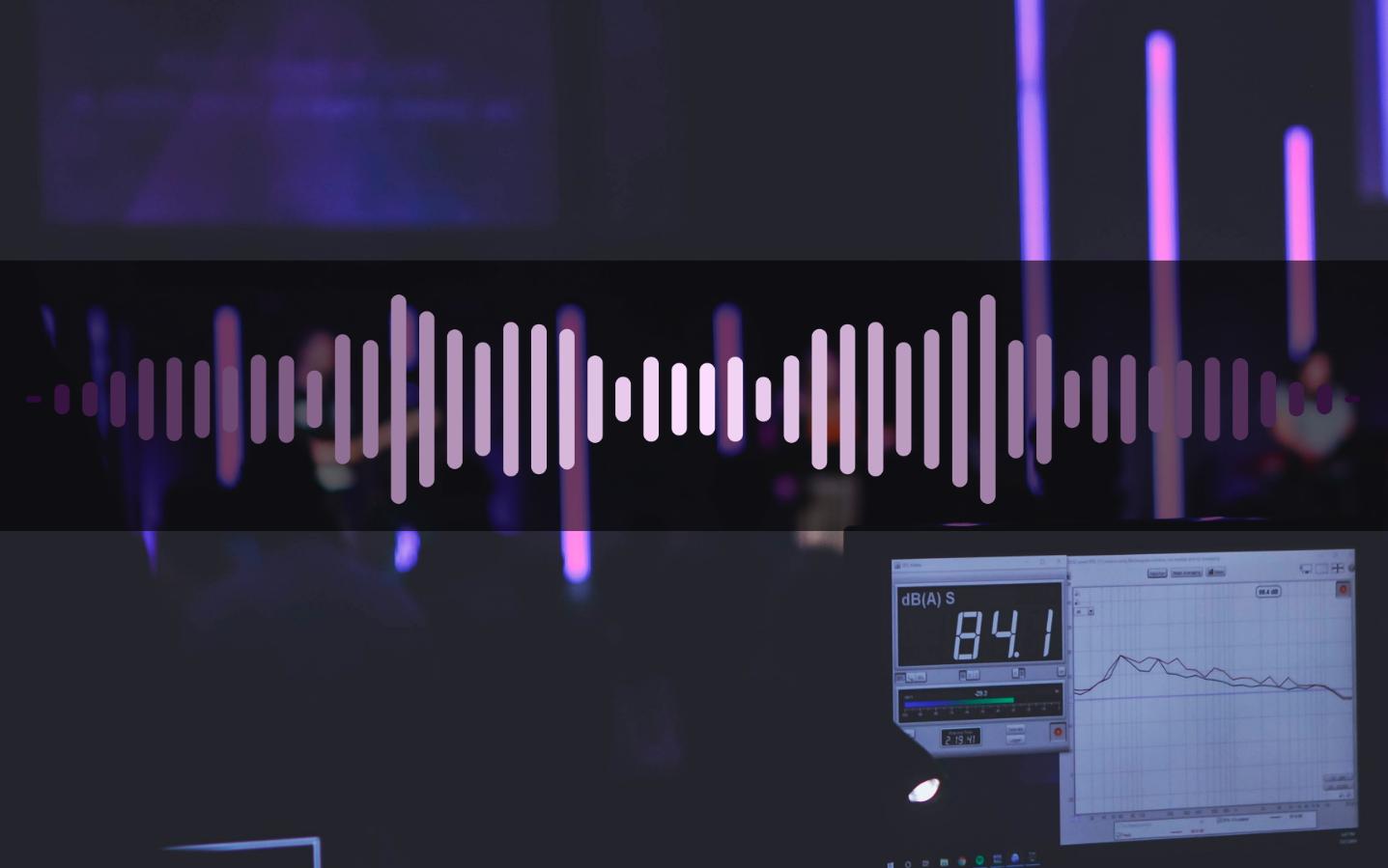The video editor for podcasters Get unlimited 15-second videos for free
Podcast Guide for Beginners: Start Your Own Podcast in 5 Easy Steps
Are you thinking about starting a podcast, but unsure how to do it? It’s easier than you think! Our beginners guide will take you through all the steps to get you ready to launch your own podcast.
Should I start a podcast? How should I go about it? Where can I promote it? If you have thought about launching a podcast, but have no idea how to start, you have come to the right place. Our guide will take you through all the steps of the process to get you ready for your very first podcast.
Getting Started
Let’s start with the first question: should you start a podcast? The answer is: absolutely!
If you are interested in the format, either as a hobby or for professional reasons, now is the perfect time to get started because for one, podcasts are becoming increasingly popular. However, at the same time, podcasts are still new enough that there is not a lot of competition out there compared to other online formats.
As of April 2021, there are about two million podcasts, but over 500 million blogs. So, the podcast field is a lot less crowded, which gives you a better chance to become successful.
And getting started is easier than you might think. It does take some planning at first, but once you have sorted out the major questions, it’s a straightforward process.
1. Planning your Podcast
Before you record your first episode or think about promoting your podcast, you should answer these four basic questions about your podcast:
- Why are you launching a podcast?
- What is your podcast about?
- Who is your audience?
- Why should people listen to your podcast?
Why are launching a podcast?
This is the most important question when starting a podcast. For example, are you a freelancer who wants to promote his or her skills? Or, do you run a business and want to start a podcast as a marketing tool to reach potential clients? Or is this simply something you want to do in your free time? The reason why you are creating a podcast will determine everything else and give you a clear direction for your podcast.
What is your podcast about?
The topic of your podcast should be something you are interested in or have some experience with. After all, you will be talking about the topic a lot. A lot of podcasters pick a specific topic they want to explore, such as finances, fitness, or movies.
The trick is to find a good balance between not being too general (and therefore not relevant enough), and also not too niche (and therefore not interesting to a large enough audience).
Pick a topic that is specific enough to get people interested, but also general enough to keep people listening. For example, if you are running a flower store and want to start a podcast, some good ideas might be to start a podcast about gardening, or a podcast that gives listeners an inside look at things they never knew about the floral industry.
Also, no podcast topic is set in stone. If over time, you notice that the topic you have chosen is too broad or too narrow, you can always adjust it.
Who is your audience?
Defining your target audience is key to picking topics for different episodes, and it will also determine your style. If you are a social media marketing expert and targeting your podcast at businesses who want to improve their social media marketing, the topics you choose and the jargon you use will differ from if you are creating a podcast for other social media experts .
Some podcasters also like to create a listener avatar, an imaginary person that represents their listeners, and they can keep in mind while they are recording their podcasts.
Why should people listen to your podcast?
Ask yourself: what makes your podcast special; how does it stand out from other podcasts; and why should listeners tune in? It could be because you offer a special expertise, or because you have very interesting interview partners, or because you are very entertaining. Whatever makes your podcast special will be the unique selling point you use to earn listeners.
2. Prepare your podcast
Once you have established the general themes of your podcast, it is time to think about the details, such as a name for your podcast, a description, and the format.
Picking a name
Every podcast needs a name, as this will be the most recognizable part of your podcast. There are different strategies to picking a good name for your podcast. You can go with a funny and/or clever name that stands out and gets people interested. Keep in mind though that clever names might not always tell people what the podcast is about.
The other option is to pick a descriptive name. A name such as “The Hiking Girl” will let people know immediately what they can expect. However, it might not sound very creative or intriguing.
Some people also choose to name their podcast after themselves. Especially if your podcast is about your expertise, your personality or your business, this might be a good idea.
Writing a description
Apart from picking a good name for your podcast, it is also helpful to write a short description to let people know what your podcast is about. One short sentence or paragraph is usually enough, just to give listeners an idea of what they can expect.
Tip: Some people also like to include a recognizable jingle to make their podcast episodes stand out more.
Deciding on the format
There are many different podcast formats, and all of them can be successful. The most common types are:
- Solo hosting
- Hosting with a co-host
- Solo hosting with interview guests
You could also come together with several people in a roundtable-type setting, or record documentary-style podcasts, such as the famous podcast “Serial.” In the end, the important thing is to pick a format that works for you and your podcast.
3. Plan your episodes
The next step in getting started with your podcast is to plan your episodes because they will be the backbone of your podcast. Before you get started, there are a few general decisions you should make, such as determining the length of your episode and the frequency with which you will publish new episodes.
Length of your episodes
In the podcast world, episodes that are shorter than 15 minutes are considered short, while episodes over an hour are considered long. A lot of podcasts strive to stay somewhere between 20 and 40 minutes, which seems to be a popular time frame with listeners since attention spans are getting shorter.
You shouldn’t obsess too much over the time though, as different formats might lend themselves to different lengths. It is advisable though to stick roughly to a set time for all your episodes, so listeners know what to expect from your podcast.
Once you get started, feel free to get feedback from your audience too. They will let you know if they feel your episodes should be longer or shorter, and then you can always adjust the length.
Frequency
Another key question in planning your episodes is the frequency. How often should you come out with a new episode? The golden standard is weekly episodes, but that might not be optimal for you and your schedule. You can also choose to just release one or two episodes per month.
There are even seasonal podcasts that work like TV shows where they pick a different focus each season and then release ten or twelve episodes, to then take a break until the next season.
Whatever you choose, be consistent. Listeners will come to expect a certain rhythm, so make sure you pick a frequency you can stick to.
Planning out your episodes
Some people are great speakers and very spontaneous, but even the best podcast hosts usually have some sort of script for an episode before they start recording.
Having a script will help you stick to a structure and not forget any important points. That being said, different types of scripts work better for different people. For some, it might be enough to just have a rough outline of all the things they want to talk about.
Others might prefer to have everything written down word by word. However, the risk with having everything written out is that it might sound too stiff. Still, just experiment and see what works best for you.
4. Record your podcast
Now you are ready to start recording your podcast. The most essential recording equipment is a USB microphone, your PC, and editing software.
Microphone
In the beginning, you probably don’t want to invest thousands of dollars in fancy equipment, so it does make sense to start with the basics. However, generally speaking, cheaper recording equipment tends to have lower audio quality.
So try to find a good balance between investing in equipment that will render decent quality without breaking the bank. A good starting point could be to first focus on a good microphone. A popular beginner’s microphone is the Audio-Technica ATR2100x-USB. You could also even try out a microphone attachment for your smartphone.
You can always upgrade your equipment later if you feel it is necessary.
Tip: Good headphones will also greatly improve your recording and editing results and help give you a higher quality of audio.
Editing software
There is a wide range of editing software, from free tools to expensive professional software. Start with a free program, such as Audacity. It will give you good results without having to invest too much money at first.
For more sophisticated editing, you can try out Adobe Audition or GarageBand.
5. Publish your podcast
Now that you have come up with an idea for a podcast, developed a format, and even recorded the first few episodes, it is time to get the word out there about your podcast.
Pick a hosting platform
First, pick a hosting platform for your podcast. There are several good hosting platforms out there, such as Buzzsprout, Captivate, Soundcloud and Transistor where you can upload your podcast, and they will help you to get it distributed to popular podcast platforms such as iTunes, Stitcher and Spotify.
Most hosting platforms charge subscription fees, but they also help you to get your podcasts to listeners, and many offer additional editing tools as well as affiliate programs where you can make some extra money with your podcasts.
Launch a website for your podcast
This is not a must, and might be something you do along the way as your podcast gets more popular. However, if you are launching a podcast related to your business and you already have a website, you can include a link or a landing page for your podcast on your website, which will guide additional listeners to your podcast.
Promote your podcast on social media
If you want people to know about your podcast, you also need to promote it on social media. You can create a Facebook page for your podcast, or just share your episodes on your personal or business profile.
On Instagram, it might make sense to promote new episodes in your stories. Twitter now also offers a special newsletter subscription service for creators which could help you promote your podcast to a wider audience.
Also consider creating audiograms for promoting your podcast online. Audiograms are a combination of visual art, sound waves, audio tracks, and text that come together as a video.
They are the perfect way to promote podcasts on social media, since they really grab users’ attention and make them curious to tune in to your podcast. There are several tools out there that can help you with this. Audiocado, for example, is a free online tool for creating professional looking audiograms in just a few minutes.
Of course you don’t have to work with audiograms, but they might just give your podcast the extra push it needs. And, as with everything in your first podcast; give it a try, see how it goes, and have fun with it!


